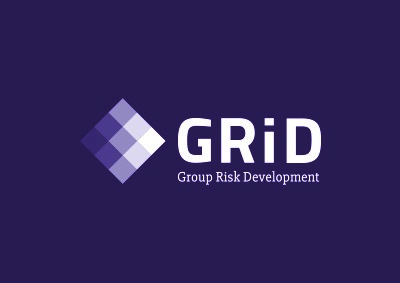Press release 17 January 2019.
When asked what employers are doing to improve health, wellbeing, engagement and productivity among employees:
- Less than a fifth (18%) are proactively managing stress and mental health issues
- Only 15% take measures to improve financial wellbeing
- Only 18% support staff with caring responsibilities
The research* covered over 500 companies conducted by GRiD, the industry body for the group risk sector, shows there is still room for improvement when it comes to looking after the health and wellbeing of staff by addressing the whole person rather than just some aspects.
Financial worries and problem debt are major sources of stress, affecting every area of an employee’s life and they can greatly affect productivity and lead to increased absence. Likewise, an increasing number of employees now have caring responsibilities, looking after elderly relatives, young children or older children that now live at home for longer. As well as being a source of stress this can also increase financial pressures as people have to fund eldercare, higher education or training and general living expenses.
Katharine Moxham, spokesperson for GRiD said, ‘Employees can be greatly affected by areas of their lives outside of work. The companies that are best at supporting the mental health of their workforce are the ones that take this into consideration and look at offering more fully rounded support. And, of course, this has a very positive effect on loyalty, engagement and productivity.’
Employers may feel more comfortable dealing with the working lives of their staff when it comes to managing engagement and productivity. This might include offering career-progression programmes, training, appraisals and so on, but it’s equally important to look at the wider lives of staff to offer full support.
Moxham continued, ‘Employers may feel less comfortable with knowing how to look after staff holistically, but many answers can be found within group risk products – employer-sponsored life assurance, income protection and critical illness. Many employers know that these products provide financial support for employees in the event of ill-health, disability or death, but (as the examples below show) they also often come with a wealth of additional support including employee assistance programmes, specific support for eldercare, fast-track access to specialist counselling, and much more. Employers looking to support their staff more fully would do well to look at group risk products.’
Recent examples of how group risk products have helped employees with mental health issues
Support for an employee with a gambling addition on the brink of suicide
One employee had developed a serious gambling problem that left him in significant debt, which put him on the brink of suicide. The group income protection provider got in touch with him and spent a year in close contact, talking things through, making suggestions and signposting him to appropriate help, with the outcome that he managed to stop gambling and was able to return to work.
Support for an employee with Post Traumatic Stress Disorder (PTSD)
A young man was cycling on holiday when his friend had an accident and died in his presence. The man suffered from severe PTSD, with ongoing flashbacks and nightmares. Due to difficulty accessing treatment through the NHS, his employer’s group risk provider funded private clinical psychology for him. After 30 sessions of treatment and 2 years of absence, he managed firstly a graded and then a sustainable full return to work supported throughout by the group risk provider’s case manager.
Moxham added: ‘Although the term Blue Monday may be seen as trivialising mental health issues, the day can serve as a good reminder for employers to consider how they can help their people better on an ongoing basis. These examples bring to life just how much support can be provided via group risk products for employees with serious mental health conditions, and that these are not just quick fixes but longer-term interventions that help people put their lives back together and get back to full functionality at work, which benefits the business too. Employees dealing with mental ill-health can be at a complete loss as to where to turn for help. Companies, too, can flounder, as specialist help is often required. The support available through group risk products provides a solution for companies that want to provide more fully rounded, targeted and specialist mental health support for their staff.’
- Ends
*The research was undertaken by Opinium on behalf of Group Risk Development (GRiD), amongst 500 HR decision makers in 500 UK businesses, including 100 in companies with more than 250 employees, during November 2017.
The GRiD Research was sponsored by Aviva, Canada Life, The Chartered Insurance Institute, Ellipse, Generali Global, Gen Re, JLT, Kerr Henderson, Legal & General, Medical Expenses Consulting (UK) Ltd, Munich Re, Punter Southall Health & Protection, Quantum Advisory, SCOR, Self Assured Ltd, Swiss Re, Unum, Wingate Benefit Solutions, Xafinity Consulting and Zurich Corporate Risk
For further information please contact:
Sharon Mason
SMUK Marketing and PR
smason@smuk.org.uk
Mob: 07747 611773
Land: 01252 843350
Katharine Moxham
Spokesperson for GRiD
Katharine.moxham@grouprisk.org.uk
Mob: 07887 512508
Notes for editors
About GRiD
Group Risk Development (GRiD) is the industry body for the group risk protection sector, promoting the value to UK businesses of providing financial protection for their staff, enhancing their wellbeing and improving employee engagement. Our membership includes insurers, reinsurers and intermediaries who have a collective wealth of experience built over years of operating in the group risk protection market. Under the chairmanship of Steve Bridger (MD Group Protection, Corporate, Aviva UK Insurance) GRiD aims to promote group risk through a collective voice to Government, policymakers, stakeholders and employers.
GRiD works with government departments and regulators involved in legislation and regulation affecting group risk benefits, and with other organisations involved in the benefits and financial protection arenas. GRiD also seeks to enhance the industry’s standing by encouraging best practice and by participating in industry-wide initiatives such as the professional qualification in group risk managed jointly with the Chartered Insurance Institute.
GRiD’s media activity aims to generate a wider awareness and understanding of group risk products and their benefits for employers and employees.
GRiD’s dedicated spokesperson, Katharine Moxham, provides expert media comment on a full range of group risk issues.
Follow Katharine Moxham on Twitter @KMoxham


